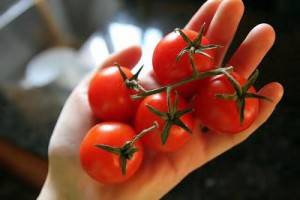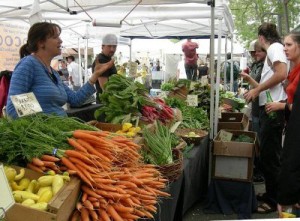Eco-Friendly Diets For Children With Special Dietary Needs
by Guest Blogger, Virginia Cunningham
Many children have special dietary needs because of food allergies or certain medical conditions. For some children, allergies can go away once they reach adulthood, while others will likely live with allergies their entire life.
No matter what your child’s dietary needs are, feeding them a healthy diet that is rich in essential vitamins, minerals and nutrients is important to all parents. For many parents, it’s also important to stick to an eco-friendly diet when it comes to giving their children the nutrition they need.
While an eco-friendly approach to a special needs diet can require a little more work, you can quickly learn what you should buy, and the process will be much simpler. Your family will also be healthier, and you’ll reduce your carbon footprint.
Shop Locally
One of the best things you can do for the environment is to shop locally for your child’s special needs diet– meaning you buy produce and items that are grown or produced in and around your area. By buying locally, your food doesn’t have to travel a long distance on a truck, resulting in less energy use and waste.
For many people, shopping locally also means access to higher-quality, fresher produce. This is particularly true in areas where farmer’s markets are common or local growers use markets to sell their food.
Of course, you’ll still need to take the restrictions on your child’s special needs diet into account. Locally grown produce might be healthy, but if your child is allergic to ingredients found in common pesticides, you’ll still need to watch out.
Talk to the grower about what’s used to grow the products if your child has allergies to ingredients commonly used in pesticides.
Go Organic
Whether or not the pesticides used in food production are harmful to children or not is still widely discussed. However, pesticides may be harmful, and there’s some evidence that pesticides may actually cause food allergies. Still, the FDA says that pesticides used in the United States are safe when food is handled and prepared properly.
However, many parents of kids on a special needs diet choose to simply avoid this issue whenever possible by buying organically grown produce, free-range meats, wild-caught fish and eggs that aren’t treated with antibiotics. Organically grown products are also better for the environment because the absence of pesticides will prevent these chemicals from damaging the earth and seeping into the soil and groundwater.
As an added benefit, many organic foods tend to have a more robust flavor. This can be helpful when trying to get kids to eat fruits and vegetables that they may not like if they’re bland and tasteless.
Make Your Own
Feeding your children eco-friendly foods that have been pre-packaged and produced can be very expensive, and in many cases, pretty much impossible for parents whose children are on a special needs diet. This is due to cross contamination and manufacturers using shared machinery that often produces other foods that include common allergens, like tree nuts and dairy. However, making your own versions of prepackaged foods, like granola bars, meat jerky and even fun snack items, like cookies, is very simple and there’s no shortage of recipes designed for people with all sorts of food restrictions.
If you have a busy lifestyle and don’t have a lot of time to spend in the kitchen, look for snacks you can make in advance and store in the refrigerator or freezer. Making your own snacks and avoiding prepared foods can also help you reduce packaging waste since you can store your food in reusable containers instead of disposable boxes and wrappers.
When it comes to really fast snacks, foods like dried fruit slices or granola bars are ideal because they can last weeks without refrigeration and are easy to eat on-the-go.
Eating eco-friendly foods, especially if your child is on a special needs diet, requires you to be much more careful with your shopping. Many parents find that the whole process is easier if they make regular menus as they find sources for quality food products.
Over time, you’ll get used to buying eco-friendly foods that are good for your child’s special needs diet, and you’ll wonder why you ever bought anything else.
Virginia Cunningham is a health writer and mother of three. Because her family’s health is her number-one priority, she tries to maintain a healthy, eco-friendly diet that meets everyone’s individual needs.




Speak Your Mind